On Turkey’s political and economic rise, its refugee crises, and the need for a new immigration policy.
As the Syrian uprising enters its 14th month, the world waits to see if the tenuous de-escalation of violence will hold and continues to debate an international intervention. Turkey’s Prime Minister Recep Tayyip Erdoğan and Foreign Minister Ahmet Davutoğlu have emerged as prominent voices in that conversation. They hosted in Istanbul the second meeting of the ad hoc “Friends of Syria” group born out of Russian and Chinese Security Council obstructionism, and they have provided a safe haven to Syrian National Council members and commanders of the Free Syrian Army. Turkey has also set up camps near the Syrian border, where approximately 24,000 Syrians have found refuge.
The Plight of Refugees
Hosting refugees has become an area of expertise for Turkey over the last 20 years. The geographical location that makes Turkey a strategic political actor and emergent power also positions it to feel the effects of its neighbors’ internal turmoil. As the Iran-Iraq War ended in 1988, 50,000 Iraqi Kurdish refugees entered Turkey and were housed in camps along the border. In 1992, more than 20,000 Bosnian refugees arrived in Turkey on tourist visas or by illegal means and were taken in by the ethnically Bosnian community. In 1999, 20,000 Albanians fleeing violence in Kosovo came to Turkey. After the Iranian regime suppressed the 2009 Green Revolution, more than 1,300 dissidents escaped to Turkey.
Despite these periodic upheavals and population influxes, Turkey has largely skirted the issue of refugee resettlement. In 1991, with half a million Kurds fleeing Saddam Hussein’s army, Turkey pressed hard for the Northern Iraq safe zone, which obviated a massive refugee crisis on Turkey’s eastern border. After both Balkan conflicts, the overwhelming majority of refugees returned home. The Iranian refugees from the Green Revolution, though, face uncertainty as they wait for asylum and resettlement.
Through the lens of Iranian refugees in Turkey, the deficiencies of Turkish migration policy come into sharper relief. Refugees have no path to permanent residency or citizenship within Turkey. The Turkish government forbids them from working any job that could be performed by a Turk. Despite proscribing work, the government initially charged refugees the regular foreigner residential permit fees of $200 every six months per adult and $100 per child, though these fees were later reduced. In the meantime, refugees hope for the opportunity to emigrate to the US, Canada, Australia, or Europe.
The inability of refugees to settle permanently in Turkey defines the central reality of Turkish migration policy: Turkey serves adeptly as a conduit but it refuses to be the final destination. The policy has sufficed because most of Turkey’s refugees in the 1990s sought—and were able—to return home. But what happens when a major refugee crisis endures indefinitely? Resolution of the Syrian conflict may not be close at hand. Turkey possesses no inclination, ability, or legal mechanism to address a major unresolved refugee crisis.
Several idiosyncratic developments in Turkey’s 90-year republican history help explain its contemporary approach to migration. Turkey’s historical self-conception as a country of emigration, its process of constructing a unified nation, its multifaceted definition of nationalism, and its perpetuation of the Kurdish issue have all shaped its cautious and restrictive approach to immigration.
Prime Minister Erdoğan and Foreign Minister Davutoğlu seize every opportunity to promote Turkey’s ascent in the international sphere, and with good reason. However, failing to address Turkey’s insufficient—and at times callous—migration policies will hinder its expanding international influence. Robust and humane migration policies can lead Turkey from merely knocking on Europe’s door to challenging its Western neighbors to raise their standards on a central international and humanitarian issue.
A Country of Emigration
For much of its early republican history, Turkey developed no immigration policy because it was hardly necessary. From the early 1960s, Turkey signed agreements with several Western European countries for Turkish laborers to work in Europe. First unskilled laborers, and later skilled workers, migrated from Turkey to Western Europe, building sizeable expatriate communities, particularly in Germany. The agreements were a boon to both Europe and Turkey. Europe secured relatively inexpensive labor to fuel its post-War economic growth, and Turkey cleared its unemployment rolls, as its economy progressed at a slower pace.
More modest growth meant that Turkey’s welfare state was underdeveloped when compared to Europe’s. Economic migrants pursuing stability and a government safety net would never have selected early-republican Turkey as a final destination.
Alongside a slowly progressing economy, Turkey experienced political upheaval throughout the latter half of the 20th century. A series of coups led nearly half a million Turkish citizens to seek refuge in Western Europe. Thus, even as the first wave of Iraqi refugees crossed Turkey’s eastern border in the late 1980s, Turks themselves were fleeing west
Turkey enacted no policies on immigration because the notion of migrants settling permanently in Turkey was inconceivable. The migrants who came only sought safety from government terror, ethnic conflict, and civil war. Turkey’s approach reflected the reality that a state lacking economic dynamism and political stability does not attract immigration—a reality that persisted for several decades. The result was a deep-seated self-perception that Turkey was a country of emigration, not immigration.
However, though Turkey’s economic and political circumstances have evolved, its migration policy has not. Erdoğan trumpets the sterling economic growth rates of recent years, and Davutoğlu speaks of the “consolidation” of Turkish democracy and a refreshed vision of internationalism. Indeed, Turkey has failed to modernize its view of immigration alongside other successes of the last decade.
Constructing a Nation
Turkey’s historical opposition to liberal immigration policies, however, did not stem from this mid-20th century self-conception as a country of emigration; rather, lessons learned from the decaying Ottoman Empire shaped early republican views. The Ottoman Empire, when compared to the other European powers, had an uncommonly multicultural and multi-ethnic makeup. A 200-year decline also earned the empire the moniker “Sick Man of Europe.” As Boğaziçi University Professor Kemal Kirişci notes, the founders of the republic attributed this decline to the empire’s ethnic diversity. Multiculturalism—in the early republican view—debilitated states. This reading of history strongly influenced the construction of a Turkish nation in the 1920s and 1930s.
Under Mustafa Kemal Atatürk’s leadership, the republic’s founders attempted to craft a nation based on disparate—and, at times, conflicting—principles. The resulting piecemeal notion of “Turkishness” engendered an ambitious project of social engineering, leading Turkey to tie the idea of its nation to an ability to control population movements on a granular level.
For Turkey’s founding fathers, “Turkishness” could refer both to an ethno-linguistic Turk community and to a Sunni Muslim religious identity. Turkish ethnie and language undergirded the romantic idea of the Turkish nation, while the Sunni religious identity guided practical decision-making about who to incorporate into the early state. Hence Atatürk incorporated the non-Turkish speaking ethnic Albanian and Bosnian Muslims while excluding the Turkish-speaking Christian Gagauz Turks.
Though these new citizens had the official imprimatur of “Turkishness,” the early republicans understood that their work did not end there. Having been called Turks, the multi-ethnic, multi-linguistic polity had to become Turkish. The Law of Settlement was passed with this goal in mind. Dividing the country into zones reflecting progressive degrees of “Turkishness,” the law established specific, divergent settlement policies for each zone. The early republican period was thus typified by highly regulated, carefully engineered population movement policies. In such an environment, Turkey’s early leaders could not countenance any immigration that was not calibrated precisely.
Turkey’s accession to the 1951 Geneva Convention addressing refugees is easily understood in this context. Turkey acceded only to European refugee entrants. European emigration—despite the looming threat of the Soviet Union—would be less significant in number than emigrants from the east, and Turkey would be an unlikely destination for most of those European emigrants. When, in the 1980s with the Bulgarian Turks and in the 1990s with the Balkans Wars, Turkey was called upon to fulfill its duty, the country welcomed these refugees and immigrants—in no small part because of their Muslim identities and the perceived likelihood that they would assimilate into Turkish culture with ease.
The Kurdish Issue
The Turkish state’s intractable conflict with Kurdish nationalism has posed a third historical barrier to liberalized migration policies. Though most Kurds share the Sunni tradition with their Turkish neighbors, the distinct Kurdish identity poses a direct challenge to the nationalist idea of “Turkishness” cultivated by Atatürk. With their own language and cultural traditions, many Kurds have resisted subordinating Kurdish identity to Turkish nationalism. The Kurdistan Workers’ Party (PKK)—which uses guerrilla tactics and violent means to advocate for an autonomous, and until recently independent, Kurdistan—is only the most radical expression of a distinct Kurdish national identity.
Perpetual conflict with Kurdish nationalism has shaped Turkey’s response to international crises over the last twenty years. After the Halabja Massacre of 1988, 50,000 Iraqi Kurds entered Turkey from the east. Refusing to acknowledge them as refugees, Turkey labeled them “temporary guests.” Refugees were housed in temporary camps and encouraged to go back to Iraq or to the West. In 1991, after the US fomented, and subsequently abandoned, the Kurdish uprisings against Saddam Hussein, half a million Kurds fled toward Turkey. Fearing the ramifications of a large Kurdish influx for the Turkish state, Turkey strongly advocated the creation of safe havens in northern Iraq. Though the move presented a humanitarian veneer, Turkey’s primary concern was the effect of significant Kurdish migration on an already tense conflict. In 2003, Turkey massed troops on the Iraqi border in advance of the American invasion, hoping to proactively contain Kurdish refugees’ flight westward.
The Kurds’ geographical contiguity causes much of Turkey’s consternation. Kurds are not merely a distinct ethnicity subverting the Turkish ethnie. Turkey’s eastern and southeastern regions are dominated by ethnic Kurds. Moreover, the Kurdish population center extends beyond the Turkish border, including parts of Iran, Iraq, and Syria. The prevalence of Kurds to the east has led successive Turkish governments—fearful of the implications for the Turkish nation-state—to psychologically wall off Turkey’s eastern border as an entrance point to the country. Sophisticated migration policies are but one casualty of this approach.
Expanding Power, Re-envisioning Policy
Though Turkey’s republican history explains why its migration policies have been woefully underdeveloped, Turkey’s emergence has rendered this approach obsolete, to say the least. Successive governments were so indifferent that for a time, Turkey outsourced its handling of asylum-seekers to the United Nations High Commissioner for Refugees (UNHCR). Only after the Gulf War-related refugee scare—and the realization that the government may want a say in who gains entry into the country—did Turkey assert control and begin working closely with the UNHCR in determining petitioners’ statuses. Yet, increased interest in asylum-seekers spurred no discernible increase in attention to broader migration issues. Three factors demand a re-envisioning of Turkey’s approach: a burgeoning economy, an evolving relationship with Europe, and Turkey’s expanding role—and self-conception—as an international power.
Economic growth is compelling change, even if Turkey does not realize it yet. In 2011, Turkey boasted the second fastest growing economy in the world. Despite projections for a modest slowdown in 2012—and significant doubts in the economics community about whether Turkey can engineer a soft landing—Turkey has seen a period of sustained growth for a decade. These periods often lead to shortages in some domestic labor markets, as was the case in Western Europe of the 1960s. Indeed, Turkey is already experiencing some shortages; for example, demand for medical services in Eastern and Central Anatolia far outstrips the supply of doctors. In response, the Ministry of Health attempted to hire foreign doctors, to no avail. The lack of comprehensive immigration policies and clear paths to permanent status could not have helped the Ministry’s case.
The crippled economies of nearly every neighboring country only stand to exacerbate the pressures on immigration to Turkey. Nearly a decade of war and sustained violence brought the Iraqi economy to a near-standstill. Sanctions against Iran have all but dissociated its economy from the global system. Fourteen months of brutal violence in Syria, compounded by sanctions, have caused a massive contraction—fully one-fifth of the Syrian economy, by some estimations. To the west, Greece faces its worst economic crisis in decades, with biting austerity measures on their way. Turkey’s economic performance would attract migrants under the best circumstances; economic bleakness in Turkey’s neighborhood ensures the issue will only increase in visibility and importance. Managing these migration flows will require Turkey to develop policies that incent the desired policy outcomes.
Developing more comprehensive and effective policies could also fundamentally change Turkey’s relationship with Europe for the better. Domestic inattention to migration policy belies the issue’s centrality in the Europe-Turkey relationship. Immigration and asylum policies are a key component of the negotiated framework for EU accession. Chapter 24 addresses “Justice, Freedom, and Security,” in which immigration and asylum play a central role. Many Turks believe that EU accession is a perpetual discussion whose time will never arrive. Yet, formally, the process remains active. Turkey can refashion its immigration and asylum policies for its own domestic reasons and advance the accession process at the same time.
Even if revamped policies produce no change in Europe’s complacency toward Turkey’s accession, they might still recast the dynamics of the Turkey-EU relationship. Over the last decade, as parts of Europe recoiled from the continent’s multicultural experiment, demography and security dominated the immigration policy issue. As Turkey is a source of, and primary conduit for, immigrants, the EU pressured Turkey to alter its policies to allay European fears. Turkey signed readmission agreements for illegal immigrants to EU countries—but only after signing similar agreements with its neighbors to the south and east. Europe has securitized the conversation around immigration policy and subcontracted enforcement of its illegal immigration issue in part to Turkey.
The discourse surrounding the EU-Turkey dynamic has centered on how Turkey must improve itself and prepare to enter Europe. By refocusing its own immigration policies on sound economic principles and humanitarian concerns, Turkey may completely reframe its relationship with Europe. Europe’s securitization has carved an opening for Turkey to occupy the moral and rational high ground. Europe views Turkey as a country in need of major reforms before EU accession can be considered. In many of these areas, Turkey does need to catch up. Symbolically, a Turkish advance toward modern and sensible immigration policies would shift the tenor of the debate. It would also enable the government to laud advances in an area in which Europe’s contemporary thinking is woefully retrograde.
More than perhaps any other country in recent memory, Turkey has made deliberate strides to elevate its station in the international sphere. Turkey’s role as a critical regional power is beyond dispute. It would be hard to deny, though, that Turkey has designs on an even larger role—at the very least, attaining formal parity with the BRICS countries. What sets Turkey apart from those countries is a consistent return to liberal internationalist values as the basis for international action. In the event that the international system undergoes recalibration, Turkey’s divergent approach may appeal to the liberal internationalist powers seeking to counterbalance the cynical realism of the Russians and Chinese. By establishing immigration policies suitable for the 21st century, Turkey can add to the evidence that its internationalist vision is distinct from its ascending power peers.
The views expressed in this article are the author's own and do not necessarily reflect Fair Observer’s editorial policy.
Support Fair Observer
We rely on your support for our independence, diversity and quality.
For more than 10 years, Fair Observer has been free, fair and independent. No billionaire owns us, no advertisers control us. We are a reader-supported nonprofit. Unlike many other publications, we keep our content free for readers regardless of where they live or whether they can afford to pay. We have no paywalls and no ads.
In the post-truth era of fake news, echo chambers and filter bubbles, we publish a plurality of perspectives from around the world. Anyone can publish with us, but everyone goes through a rigorous editorial process. So, you get fact-checked, well-reasoned content instead of noise.
We publish 2,500+ voices from 90+ countries. We also conduct education and training programs
on subjects ranging from digital media and journalism to writing and critical thinking. This
doesn’t come cheap. Servers, editors, trainers and web developers cost
money.
Please consider supporting us on a regular basis as a recurring donor or a
sustaining member.
Will you support FO’s journalism?
We rely on your support for our independence, diversity and quality.



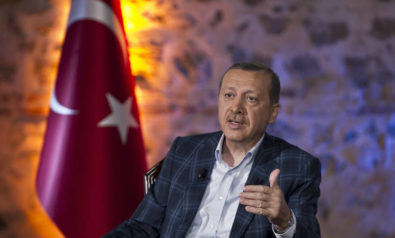
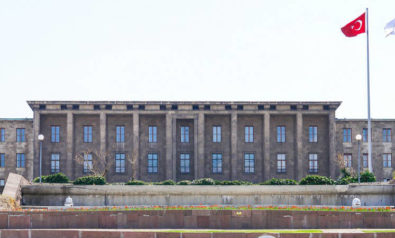
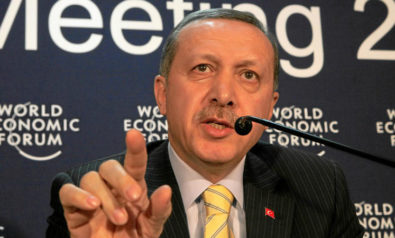
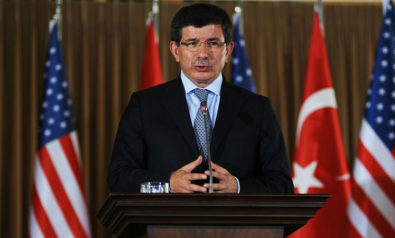


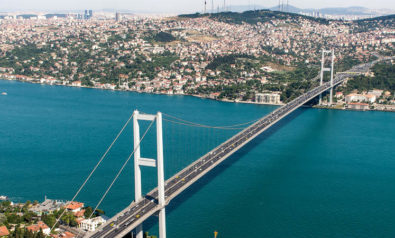
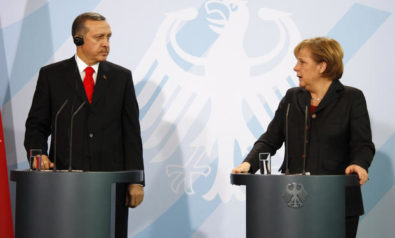
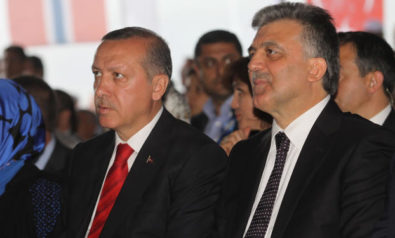
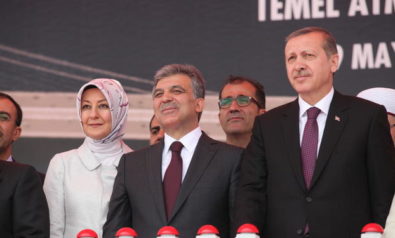
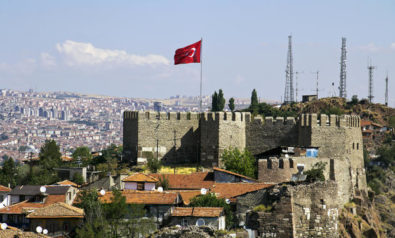
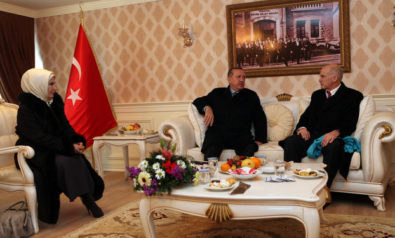
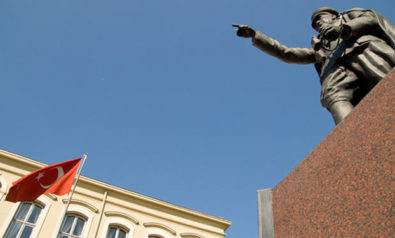
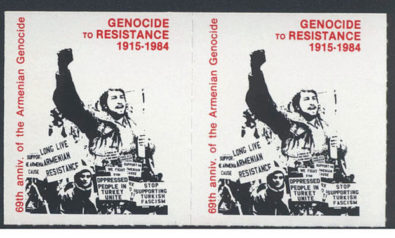

Comment